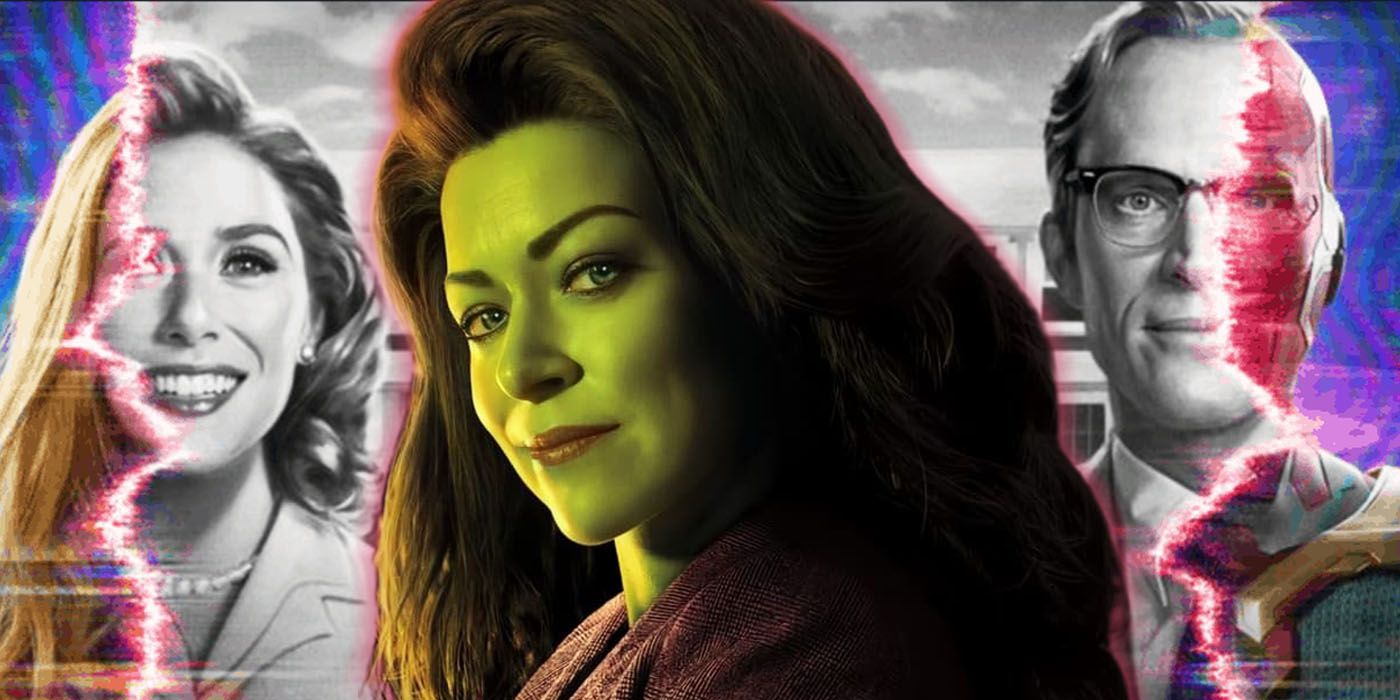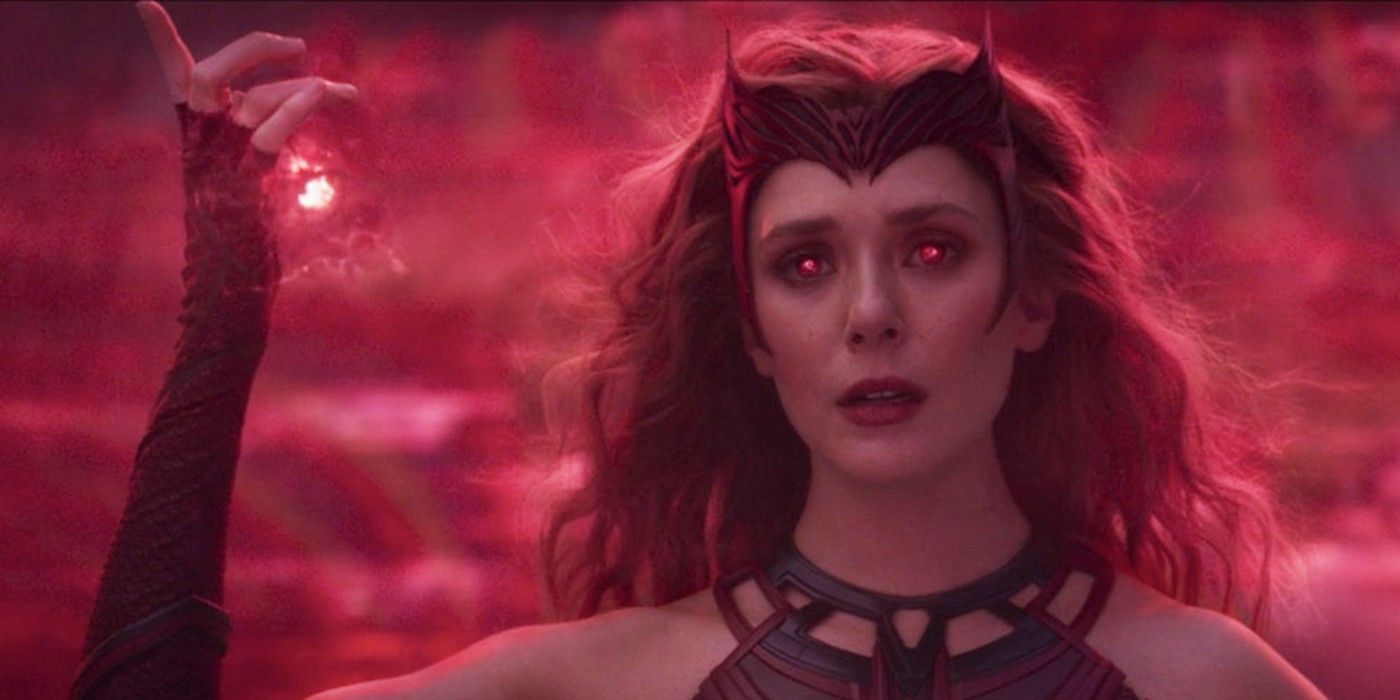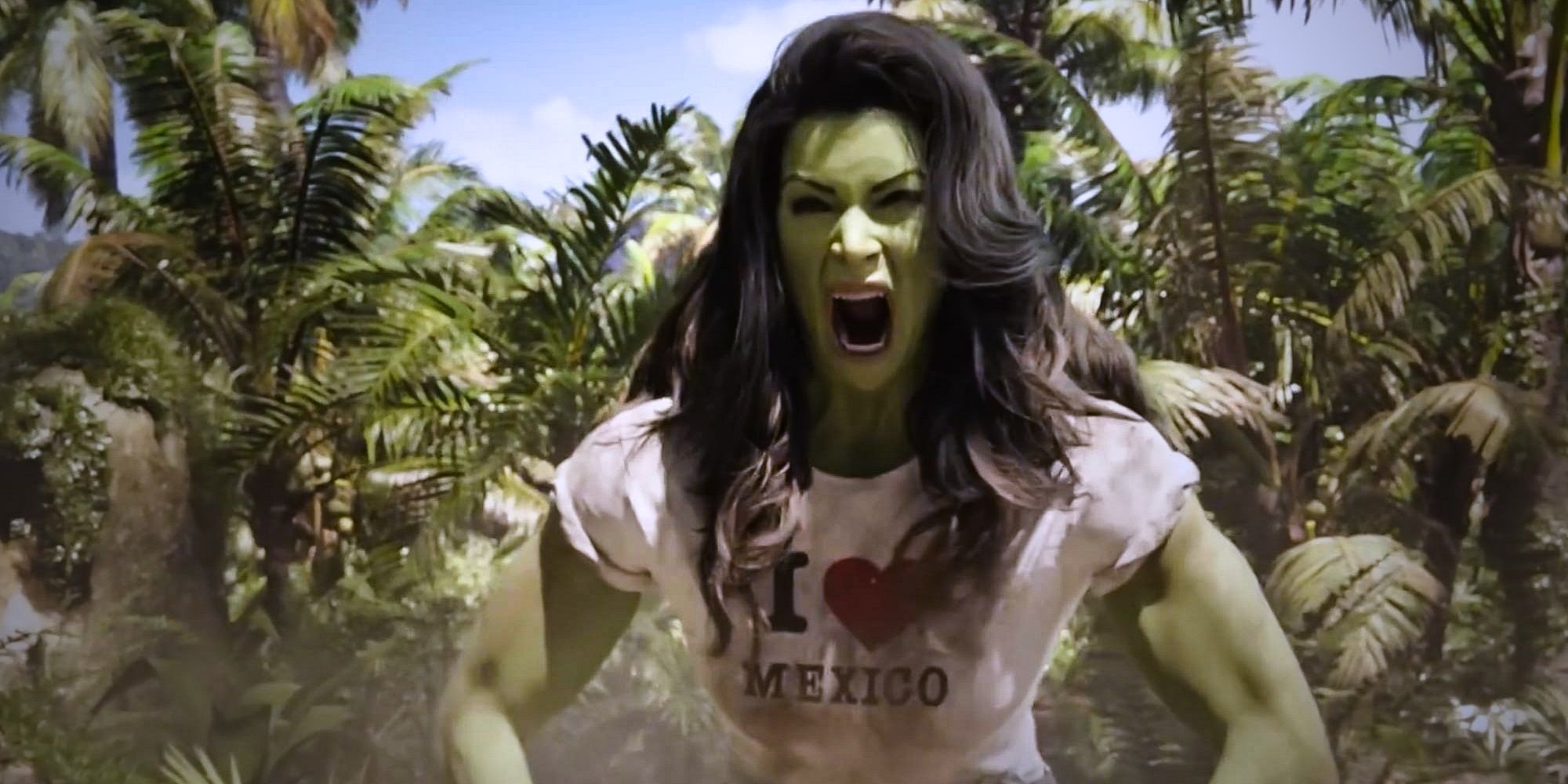The following contains spoilers for She-Hulk: Attorney at Law Season 1, Episode 9, "Whose Show Is This?" now streaming on Disney+.
Through pure chance -- and due to COVID-19 shutdowns -- WandaVision ended up being the debut Marvel Studios TV show on Disney+. The studio's newest show, She-Hulk: Attorney at Law, shares a common theme with Wanda Maximoff's series. In both cases, each show tells a very different story about a woman who experiences trauma and tries to regain control of her own life. In WandaVision, the immense power of Wanda's grief creates a nightmarish sitcom world in which she must abandon her attempt at control to accept the reality of her world. In She-Hulk: Attorney at Law -- an actual sitcom -- Jennifer Walters tries to merge the two halves of her identity into one, all framed through metatextual jokes about both superhero and misogynistic tropes.
Both series are amazing character stories that help build the Marvel Cinematic Universe even further. The two shows are also studies from different perspectives on women in control, even as shaped by real-life events. In the case of She-Hulk, for example, innumerable bad-faith takes about the "M-She-U" hounded this series, along with the accusation that the show hates men just because it tells a woman's story. If there is a unifying theme explored in both WandaVision and She-Hulk: Attorney at Law that go beyond the nine-episode season format and sitcom elements, it's the common thread of examining a world that's terrified of women with great power.
Unlike She-Hulk, the Woman Protagonist Is the 'Villain' of WandaVision
Despite the 11th-hour reveal of Agatha Harkness and Director Tyler Hayward's typically vile and incompetent representative of the US Government for the MCU, Wanda was the villain. She didn't intend to magically rewrite an entire town and take over their minds as that was all an accident. Yet, as the series progressed, her control was not only acknowledged but also directly challenged by Vision. In She-Hulk: Attorney at Law, Jen's fourth wall-breaking powers afford her an awareness of the fictional nature of her story. However, she never exerts control until the end, in a scene that feels very much like a specific criticism addressed at WandaVision: a show about an Avenger's trauma and grief didn't need a big CGI-magic battle or even the introduction of a "new" Vision.
To elaborate further, the story of Hayward and Monica Rambeau (next appearing in The Marvels) trying different approaches to reach Wanda was enough. As fun as Agatha Harkness can be, the show didn't need a showdown between her and Wanda. On a meta-level, She-Hulk "fixes" the mistake WandaVision made by giving its character control and allowing her to make things better. People reacted to She-Hulk in the penultimate episode like they reacted to Wanda, though in the Scarlet Witch's case she was actually wrong. When fans next saw her, instead of building on that characterization, she became a kid-murdering villain. Wanda proved to be a nearly unstoppable force, but one without malice in WandaVision. The overly militaristic and murderous response to what happened is almost what awaited Jen.
Marvel Studios' Disney+ Shows Aren't Empty 'Women Empowerment Fantasy'
If shows like WandaVision, She-Hulk and movies like Captain Marvel were, in fact, based power fantasies for women and girls, that would be fine. It would make them no different from any other superhero or action movies in the past 40 years, save for the target audience. Yet, like the stories about the MCU's men, these shows are just relatable, emotional human stories. Anyone who is grieving will find some resonance in WandaVision. Anyone who suffers with a little imposter syndrome at work can relate to She-Hulk: Attorney at Law. There's plenty of great empowerment fantasy in these shows, but what makes the impact are the way these characters take and relinquish control.
In Wanda's story, she experiences a moment of intense emotion that affects life around her in unexpected ways. At a crucial moment, Wanda willingly lets go of this grief, in order to stop actively harming those around her. She does this, even though it will cause her pain. While the relatable aspect of such a tale may vary based on lived experience, it's something all audiences understand. In Jen's story, she takes control when things (literally, in her case) start not to make sense. It's not just men and boys who can't jump through the Disney+ menu screen to actually rewrite their story. Anyone can walk away from that finale "erasing" that which doesn't really matter from their lives. The metaphors in both shows are universal and not bound by anything as limited as the spectrum of gender.
The reality is that even with active correction, women still remain underrepresented in the totality of blockbuster superhero films and shows. That Wanda Maximoff and Jennifer Walters are women informs their actions and the world's reactions to them. Yet, their stories are not limited in that way, but are crafted so that any audience with an open mind and heart can find something to latch onto.
She-Hulk: Attorney at Law Season 1 is currently streaming on Disney+.



